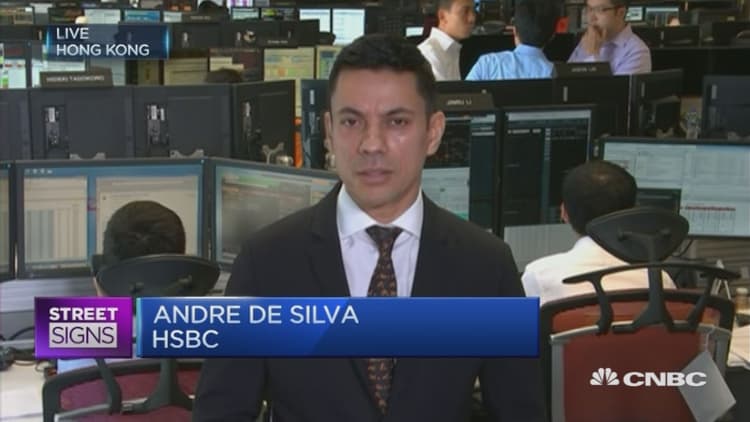
There is a key factor to consider when investing in sovereign bonds issued by emerging economies, HSBC's global head of EM rates research advises: Look for structural reform.
Bonds issued by EMs that are undertaking reforms or plan to implement them will shine as investors move away from U.S., Japanese and European bonds, Andre de Silva told CNBC's "Street Signs."
De Silva picked bonds from India, Indonesia, Brazil and Russia as the most attractive because these countries had "independent pull factors" that were attractive to investors channeling funds from developed markets to emerging markets.
"Both Indonesia and India stand out within the region of Asia," de Silva said, because of the extensive reforms introduced by their respective governments in recent years.
The Indian government was able to get a crucial goods and services tax (GST) bill through parliament in early August, which is expected to simplify India's byzantine tax infrastructure. Other crucial labor and land reforms are in the works, after the Modi government turned its focus on rural spending in the 2016-2017 budget, allocating $13.1 billion.
Indonesian President Joko Widodo, meanwhile, introduced a series of reforms that freed up fiscal space, including the late 2014 abolition of gasoline subsidies and the July 2016 tax amnesty program that encouraged locals to declare previously undisclosed taxable income in order to avoid penalties.
In an October note, HSBC said it expected Indonesian Finance Minister Sri Mulyani to introduce additional finance reforms that could push ratings agencies to upgrade their ratings on Indonesia.
In the note, de Silva and his team added Brazil and Russia as "reformist" picks, in that those countries planned to implement structural changes but came with a higher risk premium because they had not yet executed the reforms.
De Silva said the strong structural reforms in Indonesia and India also meant their respective currencies, the rupiah and the , were likely to be resilient against a surge in the — a strength that would shield them from the impact of a possible rate hike from the U.S. Federal Reserve in December that could see some of the funds currently invested in EM flow back to developed markets.
"Traditionally when the Fed does tighten, you get the high beta sensitivity for emerging markets, but that hasn't really been in play all this year," the analyst said, adding that reactions were expected to be very modest as long as the Fed hiked at a gradual pace.


